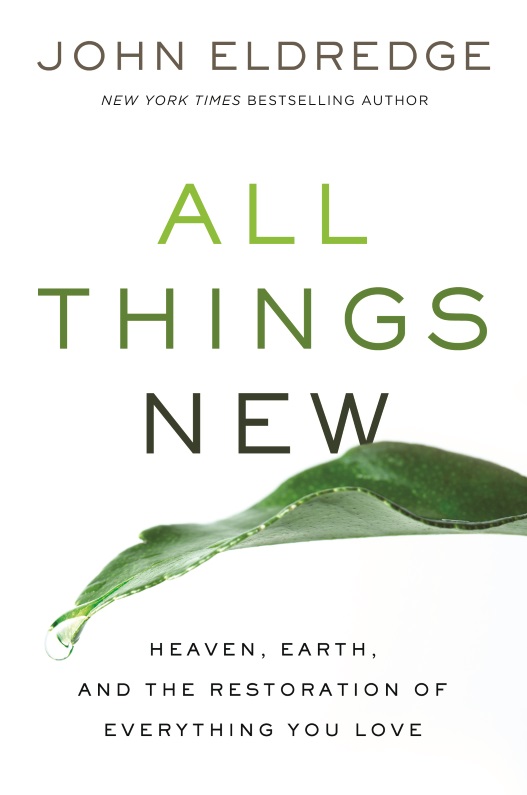We could sure use some hope right now.”
I was chatting with a friend last week about the things going on in our lives and in the world, when she said this. We were talking about our loss of a dear colleague, but also about how everyone we know seems to be facing some hard thing or other. My friend is normally a very buoyant woman whatever the circumstance. There was a pause in the conversation, and then she sighed and expressed her longing for some hope.
Yes, hope would be very timely right about now.
Though we are trying to put a bold face on things, the human race is not doing well at all. Take any of our vital signs—you’ll see. The rate of antidepressant use has gone through the ceiling in the last twenty years; antidepressants have become the third most common prescription drug. Now, I believe in medication. But I think it says something about us when depression is the leading cause of disability worldwide. Suicide rates are also skyrocketing; depending on the country, it is the first or second leading cause of death among our young people. In 2012, during the war in Afghanistan, we lost more of our soldiers to suicide than we did to combat.
We appear to be suffering a great crisis of hope. It’s taking place loudly in politics and economies; it’s taking place quietly in the hearts of millions at this moment.
By hope, I don’t mean wishful thinking. I’m not talking about “holding a positive thought,” as one friend calls it. When I speak of hope, I mean the confident anticipation that goodness is coming. A rock-solid expectation, something we can build our lives on. Not the delicate and fragile hopes most people are trying to get by with.
What would you say is the great hope of your life these days?
If it is anything at all worth talking about, Christianity is supposed to be the triumphant entry of an astonishing hope breaking into human history. A hope above and beyond all former hopes. An unbreakable, unquenchable hope. But I’ll be honest—far too often what gets presented as the “hope” of Christianity feels more like a bait and switch. “We under- stand that you will eventually lose everything you love, that you have already lost so much. Everything you love and hold dear, every precious memory and place you will lose, but afterward you get to go to this New Place Up Above!” Like a game show, where you don’t win the car or the European vacation, but you do get some luggage and the kitchen knives.
The world doesn’t believe it. And there are good reasons why.
When you consider the pain, suffering, and heartbreak contained in one children’s hospital, one refugee camp, one abusive home or war-torn village over the course of a single day, it’s almost too much to bear. But then consider that multiplied out across the planet, over all the days in a year, then down through history. It would take a pretty wild, astonishing, and breathtaking hope to overcome the agony and trauma of this world.
How is God going to make it all right? How is he going to redeem all of the suffering and loss of this world . . . and in your own life?
Escapism isn’t going to do it, no matter what religious version you choose. What about all your hopes and dreams? What about all your special places and memories, the things most dear to your heart? Is there no hope for any of that? What we ache for is redemption; what our heart cries out for is restoration.
And I have some stunning, breathtaking news for you: restoration is exactly what Jesus promised. Despite what you may have been told, he didn’t focus our hopes on the great airlift to heaven. He promised “the renewal of all things,” including the earth you love, every precious part of it, and your own story (Matthew 19:28). The climax of the entire Bible takes place with these words: “I am making every- thing new!” (Revelation 21:5). A day of Great Restoration is coming. Not annihilation—restoration. That is the only hope powerful enough to be for us what God calls the anchor of the soul: “We have this hope as an anchor for the soul” (Hebrews 6:19).
How you envision your future impacts your current experience more than anything else. Children starting the long school year feel very differently about waking each morning than those who know summer vacation is just a few days away. The woman recently served divorce papers feels very differently about her life than the woman who wakes the day before her wedding. How we feel about our future has enormous consequences for our hearts now. If you knew that God was going to restore your life and everything you love any day, if you believed a great and glorious goodness was coming to you—not in a vague heaven, but right here on this earth— you would have a hope to see you through anything. You would have an anchor for your soul, “an unbreakable spiritual lifeline, reaching past all appearances right to the very presence of God” (Hebrews 6:19 the message).
I’ll be frank—if everything is going wonderfully for you right now, and you have every reason to believe it’s going to stay that way, this book probably isn’t for you. But if you are wondering why your soul feels so unsettled, and what there really is to look forward to, if you are longing for a wild, astonishing hope that could be an anchor for your life, read on. You’re going to be very glad you did.






